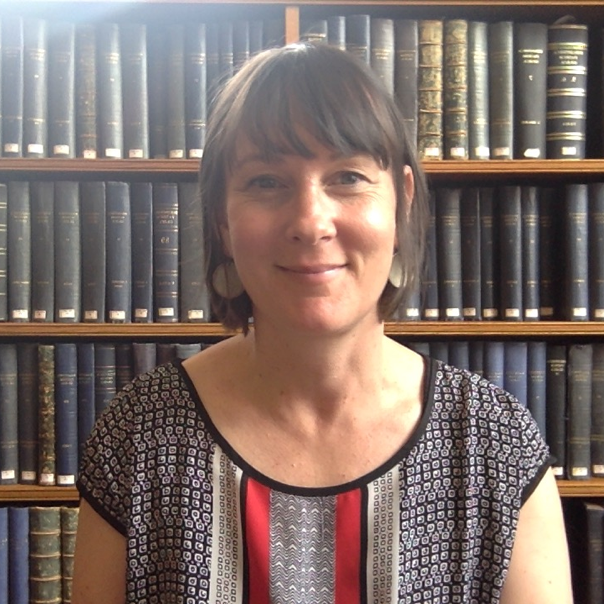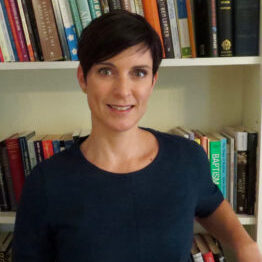Episode Transcript
[00:00:05] Speaker A: You're listening to by the well, a lectionary based podcast, preachers recorded on the land of the Wurundjeri people.
Hello, everyone. I'm Fran Barber.
[00:00:18] Speaker B: And I'm Howard Wallace.
[00:00:20] Speaker A: And this week, Howard and I will be looking at readings from the 13th week after Pentecost. In particular, we are looking at one kings, chapter two, verses ten to twelve, and chapter three, verses three to 14, psalm 111, and ephesians 515 20.
And we'll refer you to the episode last week with Kiley Crabbe and others regarding John six. That whole episode was devoted to the 6th chapter in John's Gospel.
So, Howard, let's begin with the king's reading, the rise of Solomon, and the brief reference to David's death. There's an awful lot behind this passage that we really need to know to have, I guess, a hermeneutic of suspicion, a bit about how Solomon is being portrayed here. So can you give us some of that background?
[00:01:14] Speaker B: All right. Excuse me. The last time we heard, or last week, we heard of the death of Absalom, David's son, that sort of throws us back all the way. If we remember a few weeks ago, we had the story of Bathsheba and David's taking of her and Nathan's prophecy that things would pan out not so well for David and his house. And the lectionary sort of takes us right across the events at the end of David's reignitehen, which were disastrous in relation to his household and all what Nathan was talking about is sort of being played out in that sense. There's a whole lot of information in there. Tamar, one of David's daughter, is raped by her brother, Amnon.
Absalom kills Amnon in revenge, then rebels against his father.
David flees Jerusalem.
Absalom asserts himself and proclaims himself king. But there's all sorts of spies and others around and that and Absalom, in last week's reading, eventually killed in a battle between David's forces and his own forces.
And then we move into kings. And even in the first chapter and then in the end of chapter two, the disasters continue wherever at the stage where Solomon is about to assume the throne. But he only comes through deception of the ailing and dying David. And that deception is played out by Nathan himself and Bathsheba, Solomon's mother, because Solomon is not the rightful heir. Even after all those deaths in David's family, still not the heir to the throne. There's one other son, Adonijah, who is the rightful heir to the throne. But he is killed off by Solomon as forces in the early chapters of kings itself. So by the time we get to our reading today, there's been a lot said about the disasters within David's house, but also a lot is said about Solomon himself and the way that he has usurped the throne through his mother and. And Nathan the prophet and the way they have tricked the dying David, who gives his blessing to Solomon.
[00:03:41] Speaker A: Well, goodness me. Then there is quite a sanitisation that appears to have been going on in the world in this lectionary, and what violence and mayhem. And whoever says anything about family values in the Bible needs to have a look at that episode you just played out.
[00:03:59] Speaker B: In a way, we've got David portrayed as a very mixed sort of character, faithful in many things to the point where, you know, all this tradition develops around him, but on the other hand, not so nice in some of the things he does. And what we find is that Solomon's actually going to be worse.
[00:04:18] Speaker A: Worse, right. Deeply flawed. Well, it's very sobering, obviously, at the level of narrative and also about human beings and how we are, nonetheless, despite all that made in the image of God, but also so sobering in terms of leadership dynamics we see play out in our own organizations, countries and across the globe.
Yeah, sobering here for all those reflections. So the passage set for today begins somewhat poetically. I think David slept with his ancestors, which I know this is a fairly trivial .1 of the nicest ways of saying somebody has died without it being too euphemistic. I find that quite an interesting phrase. I.
[00:05:05] Speaker B: Anyway, it's constantly there for people dying.
[00:05:08] Speaker A: Yeah, yeah. It's a nice way of putting it.
And then a summary of his reign over 40 years and seven years in Hebron. And everything was great, except we know it wasn't. You've just outlined that.
So then the lectionary tells us that Solomon loved the Lord.
[00:05:28] Speaker B: Yes.
[00:05:29] Speaker A: And walked in the statutes of his father David.
[00:05:32] Speaker B: Where the lectionary starts.
[00:05:33] Speaker A: Yes, yes. Where the lectionary begins.
[00:05:36] Speaker B: Even in the verses just before it, at the start of chapter three, Solomon made a marriage alliance with Pharaoh, the king of Egypt, Israel's arch enemies.
Things are not as they seem.
[00:05:48] Speaker A: Would you suggest a preacher or a minister provide some extra verses for this passage just to show that, or.
[00:05:57] Speaker B: Well, I would think that you could read back into that at least maybe the first few verses of chapter three. But even within the passage that's going to come that's set for us, there are a couple of signals that things are not going to be.
[00:06:11] Speaker A: Well, there is a labouring here, almost, of the sanitization with how Solomon walked in the statutes of his father, David. There was laws that he followed and he kept to those.
[00:06:25] Speaker B: As it pleased him.
[00:06:27] Speaker A: And so following on in that verse, too, talks about how he offered sacrifices at the high places, which I read to refer to the not yet built temple that Solomon will build.
[00:06:39] Speaker B: That's one position. I mean, he builds his temple in chapters five and six coming up, just one of the central bits of the account of Solomon, which runs through to chapter ten and then on into eleven.
And that's all well and good, but I think, in a way, this reference to the high places, it's referring back to the old places where Israel worshipped in the land.
But I think there's an overtone that these are the old canaanite places of worship.
[00:07:08] Speaker A: Oh, definitely.
[00:07:09] Speaker B: And so there is a little bit of a warning here that things are not going to go well. And we start our reading today with him appearing at Gibeon to sacrifice there. And the sacrifices are well and beyond what might seem reasonable, they're really quite large. So I think there's an element of warning there in that context.
[00:07:33] Speaker A: That is a warning to the reader that Solomon's excesses are all.
[00:07:38] Speaker B: Is not going to go well with Solomon. And actually, the way they've set this out, I mean, David's story, you had the good and the bad mixed together and the bad, particularly at the end, Solomon's story, you're going to hear a lot of good things about him up till chapter ten. Then all of a sudden we start chapter eleven with the fact that he's got many wives, which really means he's made lots of treaties with other kings around the place. He hasn't been as faithful as.
[00:08:04] Speaker A: Is that chapter eleven. Got a different author, by any chance? Do you know the way they've worked.
[00:08:11] Speaker B: It, we build up to a peak and then all of a sudden, crash. Yeah. We come down to earth.
[00:08:17] Speaker A: So the Lord appeared to Solomon in a dream, very customary way, to receive a vision in that way, biblically speaking. Yes, yes. Ask what I should give you. So a test, sort of. Yes, sort of ones. You know, we see Jesus go through such a thing too, in the gospels.
[00:08:35] Speaker B: And he asks for the right thing. He does seems to be wise and he's portraying himself. I mean, historically, some of the manuscripts of the Septuagint and even Josephus, though, story and sort of read the fact that he's portraying himself as only a child who doesn't know how to go, you know, do things and certainly how to command a big nation.
They took that literally, thinking he was only about twelve or 14 or something at the time. But it's actually a stock standard thing of saying, yeah, I just don't know what I'm doing.
[00:09:10] Speaker A: I'm not worthy.
[00:09:11] Speaker B: No, well, I'm not worthy by myself. Give me the drink. And that's part of a call narrative.
[00:09:16] Speaker A: It is.
[00:09:17] Speaker B: And we find the same things being said by Moses way back when he explains he can't speak properly, all that sort of stuff.
So it's part of a narrative that we expect to hear at a time when people are called to a particular task or whatever.
So he's living what's expected of him.
[00:09:37] Speaker A: He's conforming to that totally.
[00:09:39] Speaker B: I think if we read it a little skeptically, we could say that. Ask the question, is this the expression of a very faithful person who is sort of about to undertake a huge task, or is it a piece of political propaganda whereby Solomon is boosting up his right to claim the throne that's not really rightfully his?
[00:10:03] Speaker A: Well, that's a leading question to which I would say yes, by the sound of it, that is what he's doing.
[00:10:09] Speaker B: Well, I think there's both of those things mixed up and, yeah, that's our challenge as preachers, I think.
[00:10:16] Speaker A: Well, I was going to say, where is the good news? This is an important question. Where is the good news in this passage, given what we've just been outlining, verse nine is a very eloquent and profound request. Give your servant, therefore, an understanding mind to govern your people, able to discern good between good and evil.
I think they're things that we would like in all our leaders, local and national and global.
So there's something there too, obviously, very strongly pointing towards the wisdom tradition. Yes, it is that Solomon presided over, or whatever that means, how much he was responsible for it. And that is an incredibly rich vein in our biblical texts of proverbs and ecclesiastes. And also within it, if those of us who've read Sally Douglas's recent book Sophia Wisdom, that our christology actually, well, there is christology within that wisdom tradition that we've forgotten and a huge vein for prayer and worship and our understanding of God that lies within this immense tradition that Solomon is hinting towards in just this passage. So for me, in terms of preaching, that might be somewhere I would choose to go, having laid out all, you know, what you've said about how this passage is quite loaded and biased and so on. And. But there's something that are beneath it or within it, that without which our tradition would be much, much less rich and evocative.
[00:12:17] Speaker B: Yes, and I think the opposite is true to what you just said. Wisdom also pervades lots of other traditions and seeks in, and I think even in the phrase being able to discern between good and evil, of course, it harks back to the Garden of Eden.
[00:12:33] Speaker A: It does. And the tree.
[00:12:35] Speaker B: But I think that the phrase itself is something that just describes all. In other words, he's sort of saying, yeah, I just don't know how to make decisions in this sort of context.
Who can discern, who can govern this great people of your?
[00:12:53] Speaker A: And how do we know when something is right and when it is wrong, which is, given the history you've just outlined, a little bit rich because a lot of what you've, 90% of what you described is clearly evil.
[00:13:07] Speaker B: Well, it's potentially so. But I think what I keep coming back to, I mean, there is still this emphasis on wisdom and the will of God in this context. And I think ultimately what I would sort of head towards preaching, if I was just confining to this passage for the week, would be that question of being wise in the world, of really sort of questioning what comes to us in terms of knowledge and understanding, whether it be in politics, economics or social issues and that, but also in theology and seeking to discern what really is consistent with, in our case, life in Christ in the love of God, the will of God.
[00:13:50] Speaker A: Yeah, yeah, yeah.
I was going to say one other thing about that part. Oh, yes. So here I find it interesting that, you know, God says, well, you didn't ask for riches, which he didn't.
[00:14:04] Speaker B: No, he didn't.
[00:14:05] Speaker A: But I'm not sure there isn't a bit of prosperity gospel going on. Oh, yes, there is. And also a kind of, is there nothing within the biblical wisdom tradition a sense of the world's order that is right? And yes, if you do well, if you do the right things, abundance will come to you. Now it's ecclesiastes. Well, it's the teacher in ecclesiastes who really questions that and says that's not actually what happens, but.
[00:14:31] Speaker B: And is it always abundance in the sense of wealth?
[00:14:34] Speaker A: Yeah, yeah. Which is what proverbs and so on other books seem to. This is how the world works, you know, logically.
[00:14:42] Speaker B: And that's part of life, isn't it?
We have to face those sort of questions, too. I mean, if we're honest, you know, we're dealing with narrative here, and we're dealing with, in the larger sort of context of the Bible mythology, and it has a truth to proclaim and yet scientifically, if you like, we look at the world and.
[00:15:04] Speaker A: Or humanly understood. Yeah. Bad things happen to good people, whatever.
[00:15:08] Speaker B: We have to deal with other issues, you know, that. Interesting. But, I mean, there is a condition put on Solomon. He has to continue to walk in God's ways, which becomes the question of whether he is actually doing that. And if you go back to the business at the end of chapter two, just before we get to our reading for the day, he's politically manoeuvring things. I mean, David had united what was later the northern kingdom and the southern kingdom under his own sort of guise. But Solomon's certainly on a program of pushing the people from the northern tribes right out of it and elevating Judah as superior. And that's going to have ramifications when he dies, because the kingdom will split.
[00:15:57] Speaker A: So pertinent to worldly events right now, and I can't. Everyone will be able to find the connections, I'm sure, across the US and Palestine and locally.
Let's move on to psalm 111.
So this is a wisdom psalm, appropriately enough, it's acrostic, which means that the first letter of every line is from the hebrew Alphabet.
[00:16:33] Speaker B: Yes. And in the order of the Alphabet.
[00:16:35] Speaker A: And in order.
[00:16:36] Speaker B: It's a rather clever little device. Presumably the scribes sort of practice there, their writing, their. Their composition by that sort of thing. People still do acrostics these days, too?
[00:16:47] Speaker A: Sometimes, yeah. And I've not been known to encourage my children when they're trying to study for exams, to make up rhymes or, you know, something that they might remember. It's a similar.
[00:16:58] Speaker B: There's quite a number of them. And the book of Lamentations is a whole set of different sorts of acrostics.
[00:17:04] Speaker A: So they're quite didactic, or are they, you know, they're not evocative, elaborate poetry, which psalms mostly are. So a bit, you know, we've talked a bit about how Solomon's reign was very judicial and ordered as well. And so this psalm sort of conforms to that as well.
[00:17:28] Speaker B: And some of the statements are quite general.
[00:17:30] Speaker A: In sense, they are, because he talks of that. Well, the psalms talks about greater the works of God. And then there's a. The work is full of honour and majesty a couple of verses later, and then they're renowned for his wonderful deeds, etcetera, but doesn't actually say what they are.
[00:17:48] Speaker B: And remember the psalmist is probably partly constrained by beginning the next line with the next letter of the Alphabet.
[00:17:56] Speaker A: Yeah. Yeah, it's pretty limiting.
So it is also, so we heard about the statutes, the statutes referred to in the king's reading that Solomon followed David's. Well, here we've got. Got language of covenant in verse seven, all his precepts are trustworthy. Verse nine, he has commanded his covenant forever. There's a sort of a logical order that flows through this psalm as well.
[00:18:26] Speaker B: So it's quite a well constructed sort of thing. But he's not aiming to sort of to go into arguments at a great sort of depth in that context. He's more, I think, composing this as a whole to actually express a wholeness that he sort of feels in God's work, in the world.
[00:18:45] Speaker A: And my understand, also poetic element to.
[00:18:47] Speaker B: It, I think it's different.
[00:18:49] Speaker A: Absolutely. And my understanding is it's paired with psalm 112 in the sense that that one is much more focused on living the life that flows from praise of such a goddess. Yes, yes, but that's not in front of us right now. But the verse that clearly, if we're. That leaps out to me in terms of that unearthing some of the wisdom tradition, is that verse ten, the fear of the Lord is the beginning of wisdom.
[00:19:19] Speaker B: Yes. And again, I think that sort of can be underlined or underlined, the reading from kings. And that, too, the fear of the Lord being the awesome sort of honouring of God, but living as God's person and continuing to walk in God's ways, which is what Solomon was told to do.
[00:19:41] Speaker A: Yeah. All those who practice it have a good understanding. So I'm interested, too, in the word understanding that, you know, there's a fear and understanding and following and practice on all those verbs, I think are really evocative.
[00:19:57] Speaker B: And it's not just talking about intellectual understanding or intellectual wisdom. I mean, it's understanding that is displayed and absorbed into life in that context.
[00:20:08] Speaker A: Is that our final word for now?
[00:20:10] Speaker B: Oh, yes. I mean, I'd approach the psalm this week as something that's good for prayers early in the service, prayers of adoration, or even maybe some of it being generative for elements within prayers for the people.
[00:20:26] Speaker A: Yeah. Yeah, it does lend itself to that. Okay, let's move to ephesians.
So it's Ephesians, chapter five, verses 15 to 20, continuing or coming to the end of a conversation over a couple of chapters about living the new self in the new age. Put it very broadly. But you've got some links to make to help us with this one, haven't you? From chapter one and chapter four in particular?
[00:21:02] Speaker B: Yeah, for other reasons. Been reading through ephesians.
I think what Paul is doing is sort of setting out an argument about christian sort of life for the congregation. And to me, to put it in a sort of a modern question, I'd say, what is the church in the world? Because right at the very beginning, in chapter one, verse ten, we learn that God's purpose, in a sense, is to unite all things. He's been talking about Jews and gentiles, which is the immediate sort of context, I think, to unite all things, which is more than just Jews and gentiles, everything under heaven and on earth in Christ. And I think that sort of governs the whole of where he's going. This is God's plan that causes us to sort of think. I think, well, what is the church in this context? It's not a group of people that are somehow privileged in some sort of way. How do we live if God's purpose is to unite all things which is beyond just us in Christ, in the world? And it brings us back to that. And I think part of the response to it is at the end of the reading that set for last week, which was chapter four, verse 25 to five two, where in chapter five, Paul ends, therefore be imitators of God as beloved children, and live in love as Christ loved us. And so I think he's sort of laying out generally this notion of imitating God in our lives, which sounds like a very tall order to start with. It does, but love, and that's in the midst of what he does from chapter four onwards, which is actually bring forward a whole lot of what I would see as negative sort of constraints. This is what you don't do. You don't engage in manipulating the truth, you don't steal, you don't do other things. And in today's reading, you don't sort of get drunk and go into all.
[00:23:17] Speaker A: Sorts of debauchery and revelry, which I'm interested in. The very first words, be careful. I read, one of the things I read about this passage said that the be careful is not really a very helpful translation of the Greek, that it's better to have something like pay close attention. And there's more of. In the Greek, there's more of an encouraging tone to those words, because if we say the be careful, it is a bit, does for some years sound quite moralistic?
[00:23:45] Speaker B: Yes.
I mean, I think that's the danger at the end of Ephesians here to sort of treat this as some sort of moralistic sort of catalogue that he's putting forward.
[00:23:55] Speaker A: Yeah, yeah. So pay attention to how you live. And there's a beautiful use of language here in the Greek, which doesn't come out as well in the English, but the juxtaposition of wise and unwise.
And because in the Greek, it's the same word, but with an a. So a sophist or something. I'm not sure the Greek starts with a. Anyway, the opposite. Yeah, the opposite, which doesn't come out in the English.
So what is it to be wise? What does this. That's my sort of rhetorical question, which I'll try and answer to, but what does it mean to live wisely?
And I think from just this passage, we can see that it means making the most of the time. So Kairos time here, not Kronos time. So there's an apocalyptic edge here. Becoming able to tell the time is kind of what it is to live wisely, to realize the urgency or immediacy of God's call now.
And there's also a discerning and enacting the will of God, which you've alluded to being come all through chapter four.
And that also has echoes in the king's reading.
[00:25:11] Speaker B: Yes, it does.
[00:25:12] Speaker A: About discerning between good and evil.
And really, if I were just preaching on this passage, I'm quite taken by the really clear doxological worship images and evocations here. So living wisely is to engage in worship fully, and a worship that actually almost helps you tell the time or points to what we are to do in this new time, which is thanksgiving and praises and songs.
Yeah. I've just came across one of our local ministers who's finished a PhD called we are what we sing. I'm very keen to read it.
[00:26:01] Speaker B: I mean, I think that maybe you're talking there. It sort of occurred to me that it's maybe why he picks on the issue of drinking wine and getting drunk at this point, because it's a sort of an expression of sort of joy or ecstasy or something that takes over the human. And now he's not advocating drunkenness. He's certainly not sort of against wine, I don't think. But what he's trying to compare is sort of the effect of this upon what should be the effect on our life being overtaken by the spirit, being filled with a spirit.
[00:26:35] Speaker A: Well. And so getting drunk with wine, presumably, is a form of wasting time in this new age and also harming your body, which is part of Christ's body by Paul's definition, and takes the place of, as you say, being filled with the spirit.
[00:26:51] Speaker B: Yes.
[00:26:51] Speaker A: And singing psalms and so on.
[00:26:53] Speaker B: So he's playing on that sense of ecstasy. But where does your ecstasy come from?
[00:26:58] Speaker A: The spirit. And so I find there's also a really evocative, what Sam Wells would call epic and lyric juxtaposition going on here. So that means, like, that living wisely and in the spirit and living the will of God is both deeply personal, but corporate, but profoundly corporate and bodily with the other. And that you can't have one with the other. It doesn't make sense.
[00:27:29] Speaker B: I mean, I think what Paul is getting, at least as I read Ephesians, is that he's trying to spell out who the church is and what should be generating the life of the church, but also what the life of the church is within the world, because he's trying to bring all things together under Christ. There's a quote from a Princeton emeritus professor that I thought was really quite handy about the nature of the church. And she says. Her name's Sally Brown. She says the church is to be seen as a living demonstration of the world of new humanity formed in Christ's death and resurrection. So we are here, if you like, as forerunners of what God is working towards, not as the privileged removed from the world, but the forerunners of what the world is to be, to become under God.
[00:28:23] Speaker A: And that is a profound call and a joyful proposition.
[00:28:29] Speaker B: Yes.
[00:28:30] Speaker A: Perhaps one we might finish on.
[00:28:32] Speaker B: Yes. And it also relates back to kings, too, I think.
[00:28:34] Speaker A: Yeah, yeah, yeah. No, it does. We'll put that quote in the show notes, or at least the reference to it by the well is brought to you by pilgrim theological college and the Uniting Church in Australia. It's produced by Adrian Jackson. Thanks for listening.





